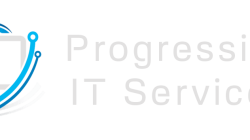Online schooling for computer science offers a transformative approach to education, making it accessible to anyone with an internet connection. In a world increasingly driven by technology, the demand for skilled computer science professionals is soaring. Online programs provide the flexibility to learn at your own pace while covering a comprehensive curriculum that includes programming, algorithms, and software development.
This mode of learning not only caters to traditional students but also to working professionals looking to enhance their skills or pivot to a new career. With the right resources and dedication, online schooling can open doors to numerous opportunities in the tech industry.
In today’s fast-paced world, the importance of mental health has come to the forefront of societal discussion. No longer just a whispered topic among friends or a stigma attached to those who seek help, mental health awareness is gaining the attention it deserves. The conversation surrounding mental well-being emphasizes the need for openness, understanding, and support in our communities. Mental health, in essence, refers to our emotional, psychological, and social well-being.

It affects how we think, feel, and act. It also plays a crucial role in determining how we handle stress, relate to others, and make choices. Mental health issues can affect anyone, regardless of age, gender, race, or economic background. Conditions such as anxiety, depression, and bipolar disorder can be incredibly isolating, yet they impact millions of people around the globe.The significance of mental health cannot be overstated.
It is intertwined with physical health, as they influence each other. For instance, chronic physical health conditions can lead to mental health challenges, and vice versa. This connection underscores the importance of a holistic approach to health, where both physical and mental aspects are addressed together. One of the most significant barriers to mental health care is the stigma that surrounds it.
Many individuals feel ashamed or embarrassed to seek help, fearing judgment or misunderstanding from others. As a society, we need to break down these barriers by fostering an environment of acceptance, where seeking help is seen as a sign of strength rather than weakness. Education plays a pivotal role in this process; by providing accurate information about mental health, we can dispel myths and misconceptions that contribute to stigma.Moreover, promoting mental health literacy is essential.
It empowers individuals to recognize the signs of mental health issues, both in themselves and in others. When people understand what mental health looks like, they are more likely to seek help when needed and support friends or family members who may be struggling. Schools, workplaces, and community organizations should prioritize mental health training to equip everyone with the tools to address these issues effectively.In recent years, technology has also made a significant impact on mental health awareness and treatment.
Teletherapy, for example, allows individuals to receive therapy from the comfort of their homes, making mental health care more accessible than ever before. There are also numerous mental health apps designed to help users manage anxiety, depression, and stress through mindfulness exercises, journaling, and other therapeutic techniques. While technology cannot replace traditional face-to-face therapy, it can complement it and provide additional support.Additionally, the role of social media in mental health cannot be overlooked.
While it has the potential to contribute to feelings of inadequacy, anxiety, and depression, it can also be a powerful tool for spreading awareness and fostering community. Mental health advocates use platforms like Instagram, Twitter, and TikTok to share their experiences, offer resources, and create supportive online communities. This digital landscape can help individuals feel less isolated and more connected, as they realize that they are not alone in their struggles.On a personal level, self-care is crucial for maintaining mental well-being.

This term encompasses a wide range of activities that promote relaxation and happiness. For some, self-care means spending time in nature, practicing yoga, or engaging in creative pursuits like painting or writing. For others, it might involve setting boundaries, ensuring adequate sleep, or simply taking a break from the hustle and bustle of everyday life. It’s essential to find what works best for you and prioritize it consistently.Furthermore, mindfulness and meditation have gained popularity as effective tools for managing stress and anxiety.
These practices encourage individuals to focus on the present moment, fostering a sense of calm and clarity. Regular mindfulness exercises can lead to significant improvements in mental health, helping individuals cope better with challenges and reducing symptoms of anxiety and depression.Support systems, whether they come from friends, family, or community groups, play a fundamental role in mental health. Having a strong support network can make all the difference when someone is facing mental health challenges.
It’s important to cultivate these relationships and ensure that they are based on mutual understanding and empathy. Active listening, validation of feelings, and simply being there for someone can create a safe space for sharing struggles and seeking help.Employers also have a role to play in supporting mental health. Workplaces that prioritize mental well-being not only create a healthier environment for their employees but also see increased productivity and job satisfaction.
Implementing mental health days, offering counseling services, and promoting a culture of open communication can lead to a more engaged and resilient workforce.In conclusion, the journey towards mental health awareness and acceptance is ongoing, and it requires collective effort from all sectors of society. From education to technology, from personal self-care to community support, every action counts in promoting mental well-being.
By fostering an environment where mental health is openly discussed and prioritized, we can work towards a future where everyone feels empowered to seek help and support one another. Together, we can break down the stigma, offer understanding, and build a healthier, more supportive society for all.
FAQ Section: Online Schooling For Computer Science
What are the benefits of online schooling for computer science?
Benefits include flexibility, accessibility, a wide range of courses, and the ability to learn from anywhere.
Are online computer science degrees respected by employers?
Yes, many employers recognize and value online degrees, especially from accredited institutions.
What skills can I gain from online computer science courses?
You can gain skills in programming, web development, data analysis, and software engineering, among others.

How do I choose the right online computer science program?
Consider factors such as accreditation, curriculum, faculty qualifications, and student support services.
Can I still network while studying online?
Absolutely! Many online programs offer virtual events, forums, and group projects that facilitate networking with peers and industry professionals.









